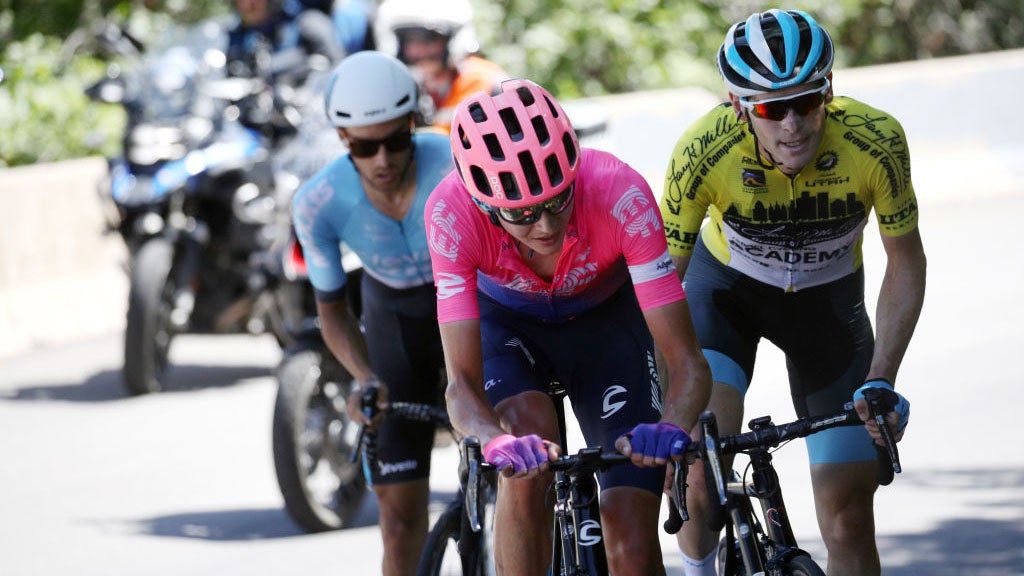
Welcome to What You Missed, our daily digest of breaking news and topical perspectives from across the outdoor world. You can also get this news delivered to your email inbox six days a week by signing up for the What You Missed newsletter.
It may be the end of an era for U.S. professional bicycle racing.
On December 22, Medalist Sports announced it was ending the Tour of Utah—the nation’s longest-running road-bike stage race solely for professional cyclists—after it was unable to find a sponsor to pay for the event in 2022. Organizers had canceled it in 2020 and 2021 due to the pandemic but were hoping to revive it.
The seven-day race, which began in 2000, was classified by Union Cycliste International, the sport’s governing body, as 2.Pro, which meant that only professional riders were eligible to compete. Throughout its 20-year history, the Tour of Utah became a proving ground for up-and-coming American cyclists, as it was a rare opportunity for them to race against stars from the Tour de France.
After the Amgen Tour of California disbanded in 2019, the Tour of Utah became the country’s only multiday stage race for male professional racers. Now only one of these races remains: the women’s-only Colorado Classic (which has not operated since 2019, though organizers are trying to revive it for 2022).
The Tour of Utah was also one of the last remaining U.S. cycling events to operate under the decades-old business model for international multiday pro bicycle races. It was financed by the Larry H. Miller family, which owns a successful chain of car dealerships in Utah, Arizona, California, and Colorado. Races like the Tour of Utah have soaring operational expenses and are traditionally financed by major cash sponsorships or government backing. Sponsors then rely on television exposure and media impressions to offset the cost.
This model dates back more than 40 years in the U.S. In 1979, organizers of Colorado’s regional Red Zinger Bicycle Classic sold a title sponsorship to the Coors Brewing Company, and the deal grew the race into one of the largest in the world. The Coors Classic ran from 1980 until 1989, and its ability to attract star riders from Europe prompted other cycling promoters to create others like it. In 1989, businessman Donald Trump sponsored the Tour de Trump, later renamed the Tour DuPont, which ran until 1996. The Tour de Georgia, held from 2003 until 2008, was financed by the state’s department of economic development. The Tour of Missouri, which ran from 2007 until 2009, was backed by that state’s tourism board. The Amgen Tour of California, which ran from 2006 until 2019, was sponsored by pharmaceutical company Amgen and billionaire Philip Anschutz. And Colorado’s USA Pro Challenge, which ran from 2011 through 2015, was backed by the family of Richard E. Schaden, founder of the restaurant chain Quiznos.
The cancellation of the Amgen Tour of California was a clear sign that this system was no longer working. American television audiences for pro cycling are steadily declining, and fewer companies are willing to fund multiday races. The Tour of Utah’s abandonment could be the nail in the coffin.
But there is still hope for cycling in the U.S., with new formats of competition attracting attention and sponsorships. These days, major brands are backing mass-participant bike races that cater to both professional and amateur competitors, such as the Leadville Trail 100 MTB and Unbound Grave.
Member Exclusive
“Our Favorite Outside Stories of 2021” The pieces we were most excited to read and publish across the Outside titles this year. Outside
Around the Outside Network
“Run Your First Trail Half Marathon with Our Training Plan” This 12-week program will get you ready to race. Trail Runner
“The Best Cities for Skiers to Live” Editors examined accessibility, diversity, and cost of living and came up with these cities that fit the bill . Ski
“5 Workouts to Help You Hike Harder and Feel Better in 2022” Get a head start on the new year with these exercises. Backpacker
The post What You Missed: End of an Era for U.S. Pro Cycling appeared first on Outside Online.
by Fred Dreier via Outside Online
Comments